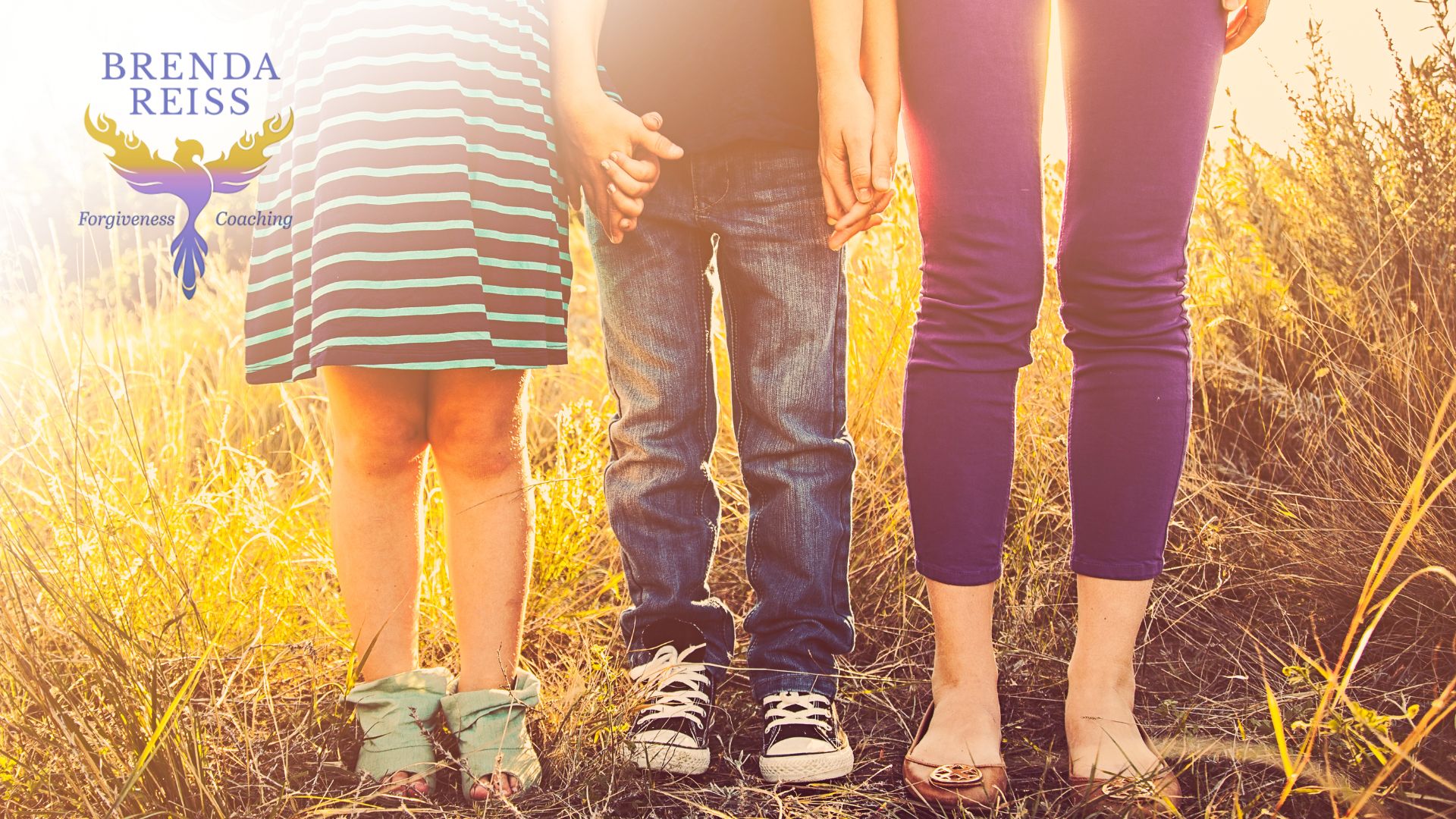Siblings share a unique bond. It’s a connection that starts from their childhood and hopefully lasts a lifetime. Sibling relationships are also not without challenges, and being ‘family’ doesn’t mean that conflicts and misunderstandings don’t happen. Sometimes, these complicated situations can create barriers that make it seem like you may never be close again, but that’s where radical forgiveness can come in. Forgiveness between siblings can bring an opportunity to heal relationships and help them be stronger than ever.
Understanding the Complexity of Sibling Relationships
Sibling relationships are some of the most enduring and impactful connections we have. They’re filled with shared memories, unique dynamics, and, of course, some inevitable conflicts. We tend to be our most authentic selves with those we feel the closest to, and that means sometimes we say and do things with the understanding that there’s unconditional love and acceptance.
Generally speaking, this is what you’d depend on family to provide. We’re still humans, and being ‘family’ doesn’t mean we get to treat our siblings without respect and consideration just because we’re related.
Siblings share a bond that’s really unlike any other. Our brothers and sisters are built-in friends and companions who help us navigate life’s ups and downs. In theory, we play together, fight, make up, and support each other through thick and thin. We build this relationship based on shared experiences, family traditions, and countless memories.
The roles we play in our sibling order are fascinating. You might be the protective older sibling, the peacemaker in the middle, or the adventurous youngest. These roles can shift over time, especially as we grow and our lives change. As we evolve and change, this actually adds depth and richness to our relationships and makes them a source of strength and comfort.
Common Sources of Conflict Among Siblings
That said, it’s no secret that some sibling relationships aren’t always smooth sailing. Here are a few common sources of conflict I see within siblings:
- Competition and Comparisons: It’s natural to compare ourselves to our siblings, especially if we’re close in age. This can lead to feelings of rivalry and competition, whether it’s about grades, achievements, or parental attention. And where we find it natural to compare ourselves, we can also find that our parents compare us.
- Parental Favoritism: Perceived or real favoritism can cause significant friction. Feeling like one sibling gets more attention or praise can create resentment and tension. We don’t give kids enough credit; we recognize these favoritisms when we’re little, and they stick with us throughout childhood and adulthood.
- Different Personalities: No two siblings are exactly alike. Differences in temperament, interests, and ways of handling stress can sometimes clash, leading to misunderstandings and disagreements. Being blood or raised by the same parents doesn’t mean we are automatically similar in our wiring.
- Life Changes: Major life events, like moving out, starting a new job, or family changes, can disrupt the sibling dynamic. Adjusting to these changes can sometimes cause temporary conflicts, particularly when one sibling remains close to their parents while others aren’t; residual regret and jealousy can emerge.
- Old Wounds: Past hurts or unresolved issues from childhood can resurface in adulthood. These lingering feelings need to be addressed to move forward. This is where forgiveness matters most; sometimes it takes you being the first to recognize your responsibility in the situation.
And that’s often the most challenging part: recognizing where forgiveness can help restore relationships with empathy and a mutual desire to grow in a supportive, loving relationship for life.
The Role of Forgiveness in Sibling Relationships
Forgiveness in sibling relationships is not just about letting go of past hurts and misunderstandings. It’s also about releasing the resentment and anger that might have built up over years of conflicts. Forgiveness doesn’t mean forgetting what happened or pretending it didn’t hurt; it means acknowledging the pain, understanding each other’s perspectives, and deciding to move forward with love and compassion.
In the context of siblings, forgiveness is an act of kindness toward yourself and your brother or sister. It’s about giving each other the grace to make mistakes and the opportunity to heal and grow together. It’s a way to honor the deep, often unbreakable bond between siblings, even when times are tough.
How Forgiveness Can Change Relationship Dynamics
Forgiveness has the power to transform sibling relationships in unimaginable ways. When we forgive, we create space for healing and reconnecting. We honor relationships, history, and love and acknowledge we want stronger bonds that we can count on. Here are a few ways forgiveness can change our relationships with our siblings:
- Healing Old Wounds: By forgiving, we can address and heal old wounds that may have been festering for years. This process can bring us relief and closure and allow you and your sibling to move forward in a new joint venture that seeks to restore and fulfill.
- Building Trust: Forgiveness fosters trust. When we choose to forgive, we show our siblings that we value their relationship more than the conflict. This trust can deepen our connection and create a more solid foundation for our future together.
- Improving Communication: Letting go of resentment clears the way for more open and honest communication, plain and simple. And it’s a choice that empowers us when we make it. Without the weight of past conflicts, siblings can speak more freely and listen empathetically, leading to better understanding and fewer misunderstandings in the future.
- Strengthening Bonds: Forgiveness strengthens the bond between siblings. It allows us to see each other as human beings capable of making mistakes and growing from them. This perspective can foster a more profound sense of empathy and closeness and, combined with the shared experiences of growing up together, can make these relationships some of the most fulfilling we’ll have.
- Creating a Positive Cycle: When one sibling takes the step to forgive, it often encourages the other to do the same. This can create a positive cycle of forgiveness and reconciliation, making the relationship more resilient and supportive. It’s the start of a positive step of faith in the other person and your history, and it only leads to more of the same.
In the end, forgiveness is about choosing love over conflict. It’s about recognizing siblings’ unique and irreplaceable bond and doing the work to maintain and strengthen that bond. By embracing forgiveness, siblings can transform their relationship into one of mutual respect, deep understanding, and unwavering support. In this way, forgiveness becomes a gift that keeps giving, nurturing the sibling relationship for a lifetime.
Practical Steps to Foster Forgiveness Between Siblings
We know forgiveness is a journey; taking practical steps can help siblings navigate this path with empathy and understanding. Here are some of my favorite actionable steps to foster forgiveness and rebuild a supportive relationship.
- Open Communication: Start with honest and open conversations. Create a safe space where both of you can express your feelings without fear of judgment. Use “I” statements to share your experiences and emotions, like “I felt hurt when…” instead of placing blame. This approach encourages constructive dialogue and helps prevent defensiveness. There are two sides to every coin, and putting them both on the table will help you make the best progress.
- Listen Actively: Truly listening to each other is crucial. Focus on understanding your sibling’s perspective without interrupting or formulating your response while they’re speaking. Active listening involves acknowledging their feelings and validating their experiences, even if you don’t entirely agree. This can help bridge gaps in understanding and foster empathy. There’s a saying about being right or being happy; I don’t advocate that you can’t be both, but I do think that if you’re listening to someone to get your point across, you’re not going to mend any fences.
- Seek to Understand Different Perspectives: Remember that each person has their viewpoint shaped by their experiences and emotions–yes, even your pain-in-the-rear big brother. Try to see the situation from your sibling’s perspective. Ask questions like, “Can you help me understand why you felt that way?” or “What was going through your mind when this happened?” Understanding their perspective can build empathy and pave the way for forgiveness. And you might be surprised at how they feel; it was possibly never your intention, and airing it helps mend it.
- Set Healthy Boundaries: Forgiveness doesn’t mean allowing hurtful behavior to continue. Setting clear, healthy boundaries is essential to protecting yourself and the relationship. Discuss what behaviors are acceptable and what are not. Boundaries can help prevent future conflicts and create a sense of safety and respect in the relationship. At the end of the day, boundaries will make you both feel secure in where you stand with each other.
- Acknowledge and Apologize: A sincere apology can go a long way. Acknowledge the pain caused and take responsibility for your actions. A heartfelt apology shows that you recognize the impact of your behavior and are committed to making amends. It’s an essential step in the healing process. Even if you’re not sure your behavior was the issue, this is your sibling, and you (hopefully) love them. You don’t want them to feel pain any more than they want that for you, so at a minimum, let your love for them shine through as you tell them you’re sorry for their heartache and any part of it you may have had.
- Let Go of Resentment: Holding onto grudges only prolongs the pain. Practice letting go of resentment by focusing on the positive aspects of your relationship and the potential for a better future. This might involve mindfulness exercises, journaling, or talking to a therapist to help process your emotions. Remember, forgiveness is for you, too. It frees you and sets you on a positive path. Letting go of resentment can be the first true step to reconciliation.
- Be Patient: Forgiveness is a process, and it takes time. Be patient with yourself and your sibling as you work through your feelings. Celebrate small steps forward and be kind to yourselves when setbacks occur. The journey towards forgiveness is not always linear, but every effort counts. Every authentic attempt to reconcile is one you can consider an investment in a better, more profound bond.
- Focus on Rebuilding Trust: Trust is a vital component of any relationship. Rebuilding trust after a conflict requires consistency, honesty, and reliability. Show that you are committed to the relationship and value your sibling’s trust through your actions.
- Engage in Shared Activities: Spend time together doing activities you both enjoy. Shared experiences can help rebuild your bond and create new, positive memories. Whether it’s a hobby, a trip, or simply spending time together, these activities can strengthen your connection.
- Seek Support if Needed: Sometimes, external help can be beneficial. Consider family therapy or counseling if navigating forgiveness independently is challenging. A forgiveness coach like me can help you have the tools and give you some techniques you can use to facilitate communication and healing.
Conflict and awkward relationship situations may be a part of life. Still, when you navigate forgiveness to help heal wounds between your siblings and you, you can come out on the other side with a stronger, more resilient relationship that grows deeper through the years.







What do you do when the offender refuses to acknowledge deep emotional injury and will not ask unforgiveness or own thier assault. They want forgiveness, but won’t own thier behavior. Not a sibling either.